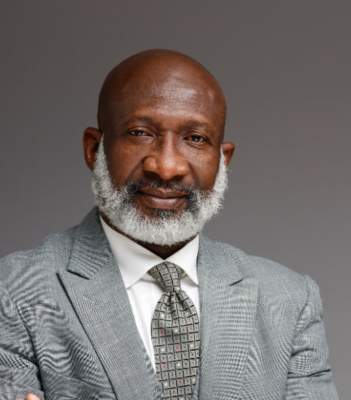As Nigeria marks her 64th Independence Anniversary in October 2024, the celebratory mood across the nation is juxtaposed with an undeniable reality: the country is in the throes of a profound economic crisis. Under the leadership of President Bola Tinubu, inflation has skyrocketed to 25.8%, unemployment remains intractably high at 33%, and the value of the naira continues to plummet. In households across Nigeria, many citizens grapple with rising food prices, increased taxes, and a shortage of opportunities that has led to a growing sense of desperation and disillusionment.
The deepening hardship signals one clear truth: the need for purposeful, responsive, and selfless leadership has never been greater.
For decades, leadership in Nigeria has been synonymous with patronage, corruption, and a disconnect from the everyday struggles of the average citizen. This leadership deficit has compounded economic challenges, resulting in sluggish reforms and inadequate public infrastructure. Today, the nation sits precariously at the crossroads of immense potential and escalating hardship.
But economic failure is not just about policies or markets; it is a reflection of governance. It mirrors the quality of decisions made by leaders who either lack the courage or the will to tackle deep-rooted problems. It is, at its core, a crisis of leadership.
In these challenging times, it is imperative to call for a renaissance of leadership across all sectors—politics, business, and civil society. Nigeria does not need leaders who merely occupy offices; it needs leaders who will:
- Embrace a Servant-Leader Mindset: True leadership is service, not dominance. Our leaders must shift from the “big man” syndrome to a model where serving the people is paramount. In times of hardship, leaders must be the first to make sacrifices, showing empathy and prioritizing the needs of the populace above personal gain.
- Engage in Data-Driven Decision Making: Leadership in the 21st century must be informed by data, not sentiment. The ongoing economic challenges demand evidence-based solutions, not populism. Leaders must rigorously analyze socio-economic indicators—like unemployment rates, inflation, and poverty levels—before rolling out policies that impact millions of lives.
- Exemplify Selflessness and Dignity: Nigerian leaders must rise above the corruption scandals and nepotism that have marred governance for decades. Leadership with integrity—free from self-serving agendas—is the bedrock of national transformation.
- Be Responsive and Adaptive: The economic landscape is rapidly evolving, requiring leaders who are not only responsive to the immediate needs of the people but are also agile enough to adapt their policies to changing realities. As poverty deepens, citizens expect leaders who understand their plight and can provide immediate relief through targeted interventions such as social safety nets, subsidies for essential goods, and job creation initiatives.
Countries that have successfully navigated economic crises are often those that had leaders who led with purpose and clarity. In Singapore, Lee Kuan Yew’s transformative leadership demonstrated how a focus on pragmatic governance, zero tolerance for corruption, and a clear vision for development can catapult a struggling nation to prosperity. Similarly, post-apartheid South Africa saw Nelson Mandela exemplify sacrificial leadership, uniting a deeply divided country while laying the foundation for inclusive governance.
Nigeria, with its vast resources and entrepreneurial population, can similarly chart a new path—if only it adopts a leadership paradigm that is purposeful, pragmatic, and people-centred.
While the government bears the bulk of the responsibility, leadership is required across every facet of Nigerian society. Business leaders must lead ethically, rejecting exploitative practices that burden the consumer. Civil society leaders must act as watchdogs, holding those in power accountable while proposing viable solutions to national challenges. Community leaders must serve as pillars of integrity, fostering unity and a shared sense of purpose.
It is time for Nigeria’s leaders, at all levels, to re-invent themselves. They must rise to the occasion and provide the transformative leadership that this moment demands. For Nigeria to realize her potential, leaders must:
- Listen to the People: Policy must align with the reality on the ground. The rise in fuel prices, taxes, and unemployment means leaders must prioritize the voice of the citizens, especially the most vulnerable.
- Be Transparent and Accountable: Leaders must work to build trust, a commodity that has been lost due to years of unfulfilled promises and opaque governance practices. In the digital age, transparency and accountability are non-negotiable.
- Collaborate Across Sectors: No single institution can solve Nigeria’s problems. Political, business, and civil society leaders must work in concert to forge solutions to the complex challenges we face, from economic recovery to social cohesion.
As Nigeria steps into her 64th year of independence, the case for purposeful leadership cannot be overemphasized. The economic challenges are daunting, and the road to recovery will be long and difficult. But with a leadership class that is willing to sacrifice, to serve with dignity, and to put the people first, there is hope for a better tomorrow.
The time for excuses is over. Now is the time for leaders who can rise above narrow interests and lead Nigeria into an era of prosperity, unity, and purpose.
The Nigerian people are watching. History will judge our leaders not by their intentions but by their actions. Let this anniversary be the moment we look back on as the turning point—when Nigeria’s leaders finally rose to the challenge and led with purpose.
Happy Independence, Nigeria! May the road ahead be one of renewal, transformation, and lasting change.
– Ginger-Eke, a public affairs and strategic communication expert, writes from Abuja
We’ve got the edge. Get real-time reports, breaking scoops, and exclusive angles delivered straight to your phone. Don’t settle for stale news. Join LEADERSHIP NEWS on WhatsApp for 24/7 updates →
Join Our WhatsApp Channel










